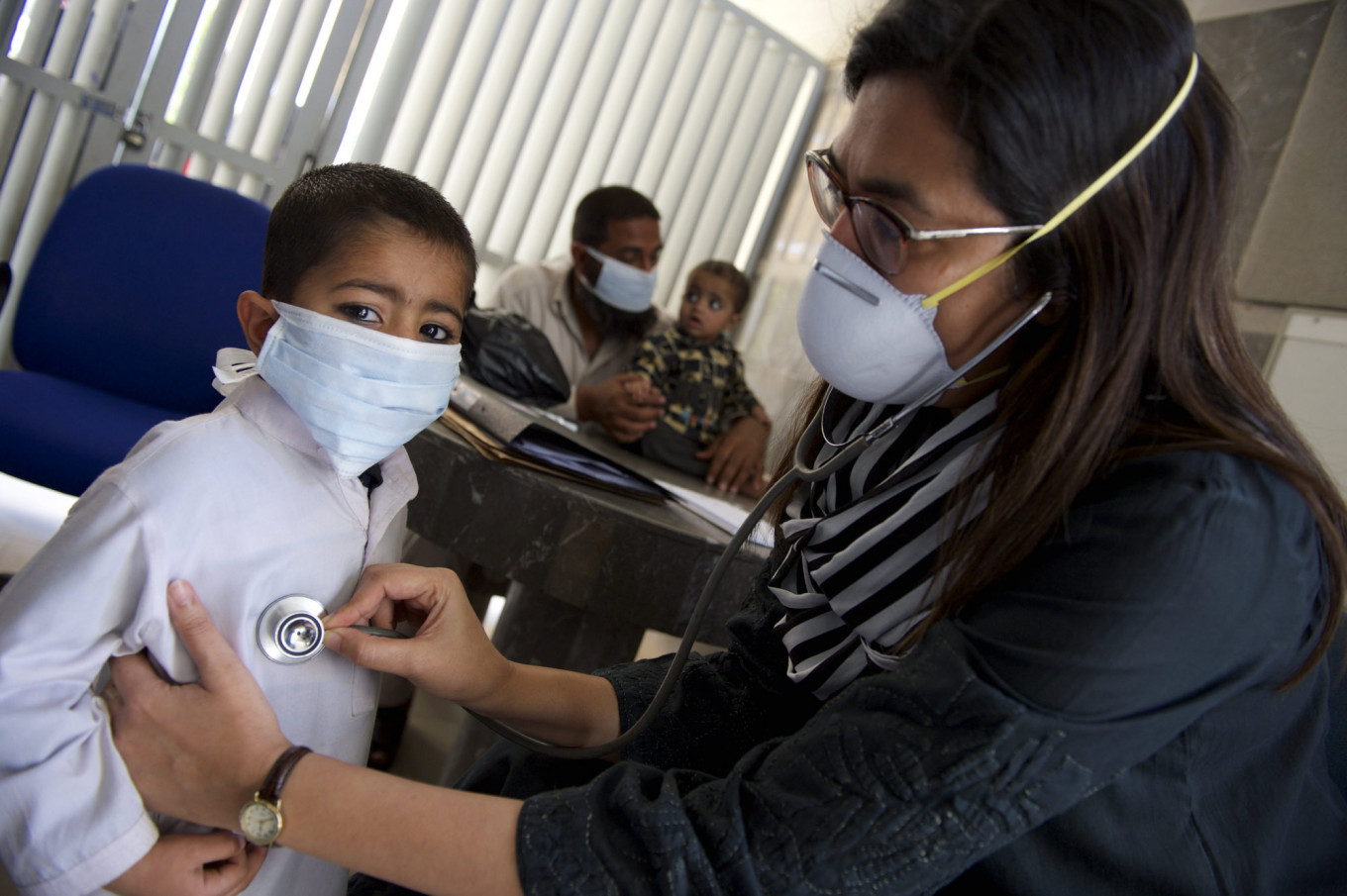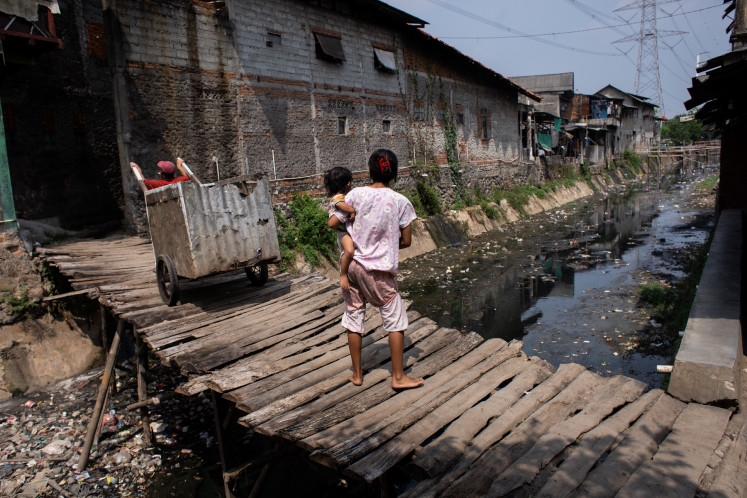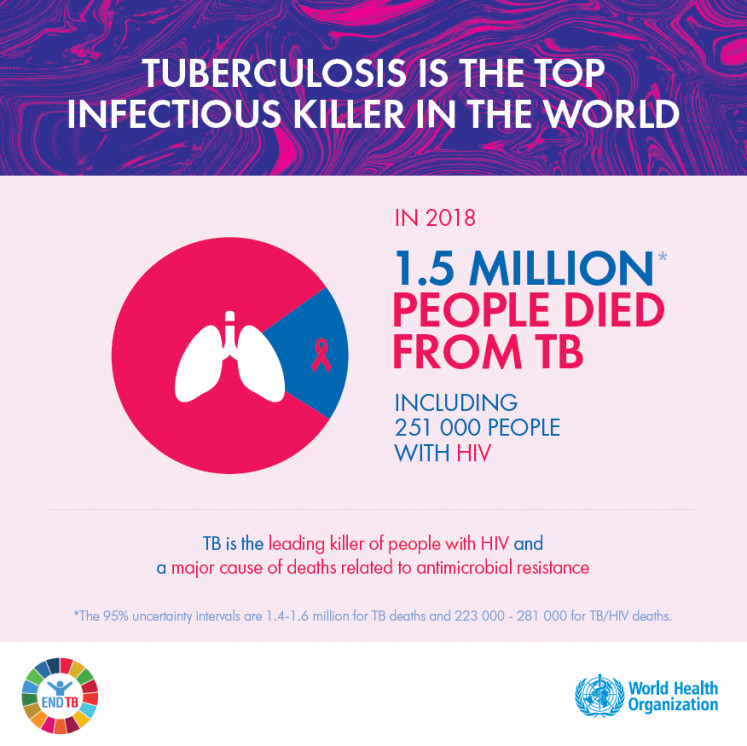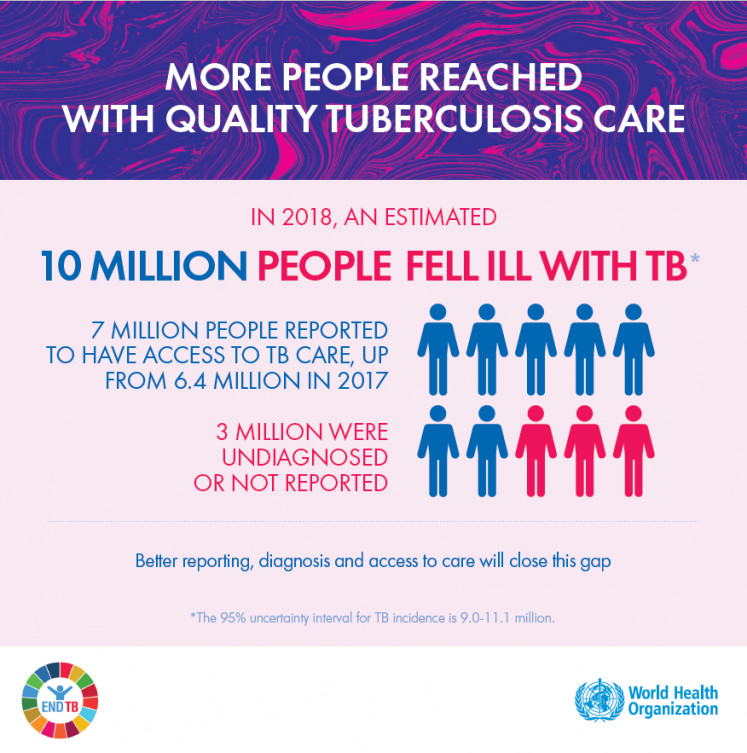Popular Reads
Top Results
Can't find what you're looking for?
View all search resultsPopular Reads
Top Results
Can't find what you're looking for?
View all search resultsPandemic cripples national, global efforts to end TB
Change text size
Gift Premium Articles
to Anyone
COVID-19-related lockdown measures are creating barriers of access to comprehensive tuberculosis (TB) services.
A 30-year-old researcher, Anggita, is scrambling to get regular medicine and treatment for her TB at a private hospital next to her office in South Jakarta but found nothing left at the hospital amid the COVID-19 pandemic since early April.
“I was diagnosed with TB a year ago and have to go through TB medication for one year without interruption. Now, I am in my seventh month of medication, but I am very worried that the medicines are scarce now and that I have to repeat my TB treatment from zero,” said Anggita, who braved the large-scale social restrictions (PSBB) enforced in the capital city of Jakarta to get her medicines.
Anggita is not alone. Millions of people with TB in Indonesia and other countries in the world fear disruption of their medical treatment during the COVID-19 pandemic.
Early diagnosis, contact tracing, initiation of TB treatment, uninterrupted treatment, follow-up, side-effect management, monitoring and treatment and other TB care is being affected, making it hard for TB patients to access needed healthcare services.
As mid-June 2020, most Asia Pacific countries are still locked down to some extent because of the COVID-19 pandemic. Indonesia is no exception, although some cities, including the capital of Jakarta, have started opening businesses, offices and public transportation.
The present COVID-19 chaos could weaken the quality of TB data that high-burden countries such as Indonesia are able to collect and analyze.
With an estimated 1.2 million people with TB, Indonesia accounts for about 10 percent of the global TB case number. About 760,000 (49 percent of the global total) people die from TB each year in the region, and more than 65,000 people die in Indonesia every year.
“Around 3 of 10 million TB patients are deemed ‘missing’, because either they have not been detected or they have not reported to health authorities,” stressed Tara Singh Bam, deputy director for the Asia-Pacific region of the Paris-based International Union against Tuberculosis and Lung Diseases (The Union).
“We [The Union] believe that health services, including programs to combat TB, need to be actively engaged in ensuring an effective and rapid response to COVID-19 while ensuring that TB services are maintained and uninterrupted,” explained Tara.
TB is still the most deadly infectious respiratory disease in the world, with 1.5 million people dying of TB annually, or 4,000 every day, and the number of people who develop the TB disease, around 10 million, has been relatively static for decades.
TB affects mostly low- or middle-income countries, where widespread poverty, a lack of medical care and little public health intervention allows the disease to spread in cramped living conditions.
Just a few weeks prior to the first COVID-19 outbreak in Wuhan between Christmas 2019 and New Year’s Eve, Indonesia hosted the launch of the Global Plan as a follow-up commitment to the 2018 United Nations political declaration to end TB, with specific targets by 2022 (40 million people treated for TB, including 3.5 million children and 1.5 million people with drug resistance).
The Global Plan explains the need for new diagnostic tools, medicine and ultimately, a TB vaccine, explained Paula Fujiwara, scientific director of the The Union in a virtual interview after the launching.
“In fact, this is what has to be done immediately to provide the resources to develop these tools,” Paula said adding that research would take time, but during the time tools are being developed, each part of the global community had a part to play.
“Why we chose Indonesia as the host is because we looked at countries with a high TB burden, and the country is the best place where we think we can intervene with the government and make a big impact-by bringing political awareness and advocacy to the topic,” she maintained.
With support from the chair of the Indonesian Stop TB Partnership, Arifin Panigoro, the Global Plan to End TB has received a strong political commitment from Indonesian President Joko “Jokowi” Widodo.
What was most concerning, Paula said, was that Indonesia still lagged behind in the treatment of people with TB, which is only 67 percent.
“This means Indonesia is not yet diagnosing 23 percent of the estimated number of people with TB,” added Paula.
The COVID-19 pandemic will likely halt the implementation of the Global Plan to End TB as well as regional and national efforts.
A study by The Union’s scientists found that COVID-19 has impacted all research activities and scientific conferences on TB and has caused delays in the distribution of TB drugs, diagnosis and vaccine trials, which could have a big impact on when new tools can be introduced.
“Years of under-investment in supporting health systems respond to TB have made TB and its drug resistant forms the biggest infectious disease killer with over 4,000 deaths per day. We can’t afford to repeat these mistakes and be unprepared for pandemics like COVID-19,” said the Union’s executive director, José Luis Castro.
Huge efforts were currently being made to develop COVID-19 tests, drugs and vaccines, he noted.
“This could have a chilling effect on research and development for new TB technology,” Castro added.
“TB is already under-funded by about $3billion per year. Donor support [via the Global Fund, PEPFAR and Unitaid], therefore, might be critical to tide over this looming crisis,” he noted.
Castro further said a diversion of TB funding to COVID-19 was a real concern.
“Every effort should be made to minimize this. The bigger concern, in the longer term, is that countries will cut expenditure on TB because of the possible massive economic loss due to the outbreak.”














